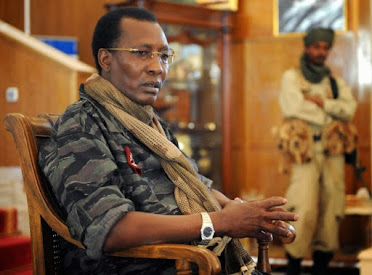Alice C. Linsley
Twitter permanently suspended Trump two days after the Jan. 6 assault on the Capitol building. There is concern that President Trump’s tweets to his 88 million followers risked
“further incitement of violence.”Now Trump's Twitter account is closed, permanently.
Twitter made the right decision and should have shut
down Trump's account sooner. Though the Media sometimes portrays President Trump's followers as a homogeneous group of rightwing fanatics, Trump’s followers are a diverse group. Unfortunately, some resemble cult members in
their behavior.
Trump supporters fear that their hero will be silenced by all the social media platforms. This is naive. The platforms thrive on celebrities and often give them a pass when they violate community standards. Mr. Trump lost his privileges at
Twitter, but we will hear from him again.
It is evident that the former president vilified the Media and made enemies there. Political rhetoric has consequences. History reminds us that other charismatic figures of the
past have levered themselves to positions of power by making scapegoats, among them Jews, the Media, and middle-class white men.
Calling a rally on the day the electoral votes were to be
counted and accepted was unwise. It seems President Trump hoped to show Congress
that he has loyal supporters. Did he believe that the allegedly fraudulent
votes could be thrown out, leaving him the winner?
Some Trump followers invaded the Capitol while
deliberations were in progress. There were five more states to consider.
Did
his tweets and his speech incite violence? It appears they did, but the impact was that of a slow train gaining speed over the past four years. The POTUS is a
powerful figure. When events get out of control and threaten lives, property, and the Constitution the censorship of inflammatory
political rhetoric is reasonable.
Twitter permitted POTUS to tweet things that went
against community standards. They gave him a great deal of leeway over these four years. They should apply their community standards equally to all people. You might call this "censorship" but holding people to high standards of
communication is a good thing.
Community standards should be applied equally. Celebs included.
Why do some people get a pass? It appears that the more famous you are, the
less likely you are to be censored.
President Trump's tweets were
lightning rods that drew criticism from his opponents on the Left. The closing of his Twitter account exposed their hypocrisy. They oppose censorship, yet they resort to it when threatened. The same can be said of opposition on the Right. Nobody wins the news slinging contest.
Twitter is a private business and can ban anyone. Bakers legally can refuse to bake a wedding cake for a gay couple on grounds of their religious convictions. Roman Catholic institutions can refuse to provide health insurance covering
birth control and abortion. Gay couples are not silenced by the refusal of the bakers. They still can "marry" and enjoy their cake from another bakery. A Catholic can buy birth control and get an abortion by other means. Twitter has not violated President Trump's
First Amendment right. He no longer has a voice on
the Twitter platform, but he has options, as we all do.
Now, if every platform is closed to him, Trump has grounds for
a big lawsuit. But why would all the platforms shut him out? Shutting out
President Trump means loss of income and benefits reaped from his celebrity.
So, the issue is not censorship which takes place every day at multiple levels. Some Facebook friends do not like what I post and they "unfriend" me. Fox, CNN, MSNBC screen and edit new stories to fit their bias. It is no surprise that the average American wonders what to believe and distrusts Big Tech.
I have managed seven Google blogs for over thirteen years and I never had anything censored by Google, and believe me, I have posted many
politically sensitive articles. The one time a blog post was censored (at Christian Women
in Science) it was because someone claimed that the post went against
community standards. I appealed and Facebook reserved the decision. The educational site Christian Women in Science was cleared of the malicious claim. There are ways to say things that are acceptable. President Trump often failed to measure his words and consider how his angry
tweets might influence his supporters.
I use social media extensively. I try to use it
constructively, respectfully, and responsibly. How has President Trump used it?
Being POTUS, he was allowed to tweet comments that would have been censored
were they posted by ordinary citizens.
The best way to keep speech free is to speak more often and to
express a range of views. That is a reason to blog, write for publication,
discuss these matters on social media, and use every available venue for
expression. In the end, free speech is hard work and requires being an adult.
Related reading: What Elon Musk's Purchase of Twitter Could Mean for Donald Trump's Account; The Ethics of Blogging; Arguing About Social Concerns; Giant Tech Faces Antitrust Hearings; Regulation of Big Tech; Social Media Bots and Political Propaganda; The Media Stokes Anger and Radicalization; Trapped in a Web of Punditry; Political Debate and Search Engine Politics









